The Tale of Nyungwe Encroachers, Poachers Converted into Eco-rangers
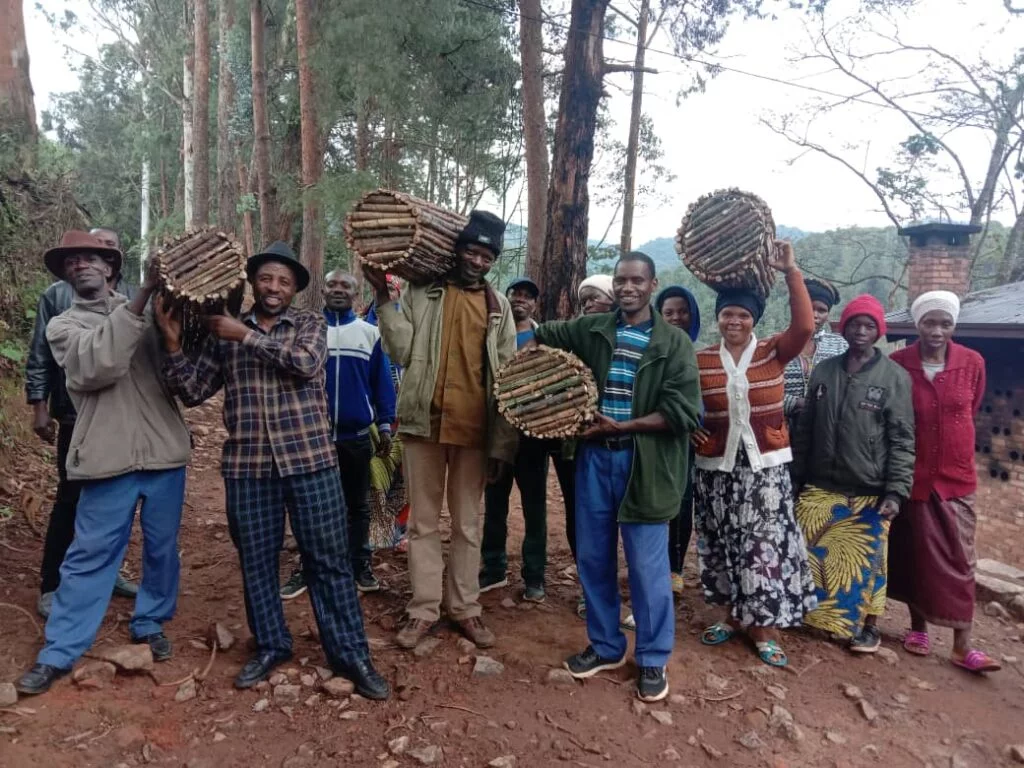
Former Nyungwe encroachers,poachers became Eco-rangers.
Nyungwe National Park from the South West of Rwanda was established in 2005 and it covers 1,019 square kilometers equivalent to 100,000 hectares of mountains with natural forest, burbling streams, sun-starved valleys, and extensive swamps which hide a myriad of new species waiting to be discovered or rediscovered.
In this area, beekeeping plays a major role in the rural communities’ livelihoods given the honey’s medicinal value, as well as its income obtained through value addition in honey processing units.
Several bee keepers traditionally have the technology to make hives from indigenous tree trunks and by hallowing them, then sealing off the ends with dung, they only leave small holes through which the bees can enter.
When the hives are dry and ready to use, they kindle a fire that burns to produce smoke at the holes, which attracts the bees.
For decades, the traditional beekeepers who operate at the park belt in Bweyeye Sector and other sectors of Rusizi and Nyamasheke district respectively were accused and arrested for setting wildlife fires while harvesting honey from their traditional hives.
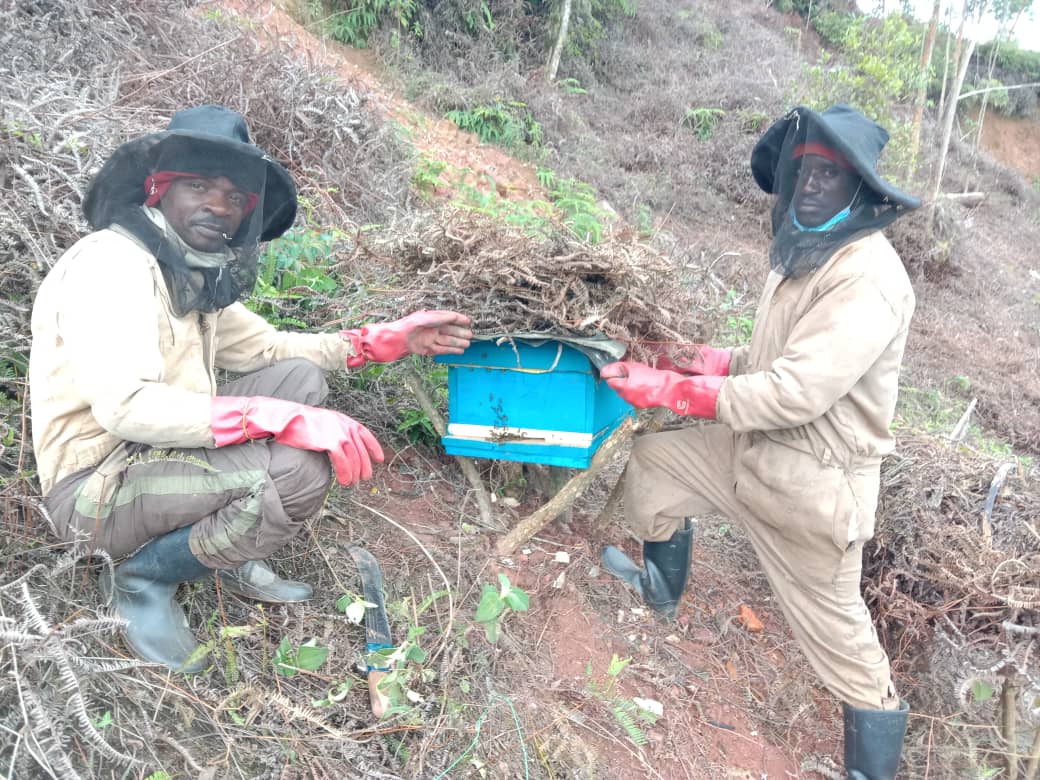
However. They would also encroach the park either for search of indigenous or natural honey or poaching
Grassroots officials said that they spare no effort to discourage such vices.
“We conducted several meeting with Bweyeye beekepers in order to create awareness against illegal activities conducted at the park,” said Daniel Ndamyimana Executive secretary of Bweyeye sector.
“In partnership with Rwanda Development Board(RDB) officers and the advocacy we conducted, some traditional bee keepers and poachers into Nyungwe National Park conservation changed their mindset.”
Ndamyimana further said that in the awareness campaign, they were educated about the conservation of Nyungwe’s biodiversity and trained by the park management to work hand in hand with the park’s community liaison and law enforcement department to reduce illegal activities such as honey hunting, logging and poaching in the Park.
All recruit have to join Nyungwe’s law enforcement team as field Eco-rangers who are tasked with patrolling its 1,019km2 landscape.
“We offered them a chance to come into the mainstream which means better life for their children and families. We initially set up small entrepreneurship projects for them, through their cooperatives,” said Protais Niyigaba, Nyungwe National Park Manager.
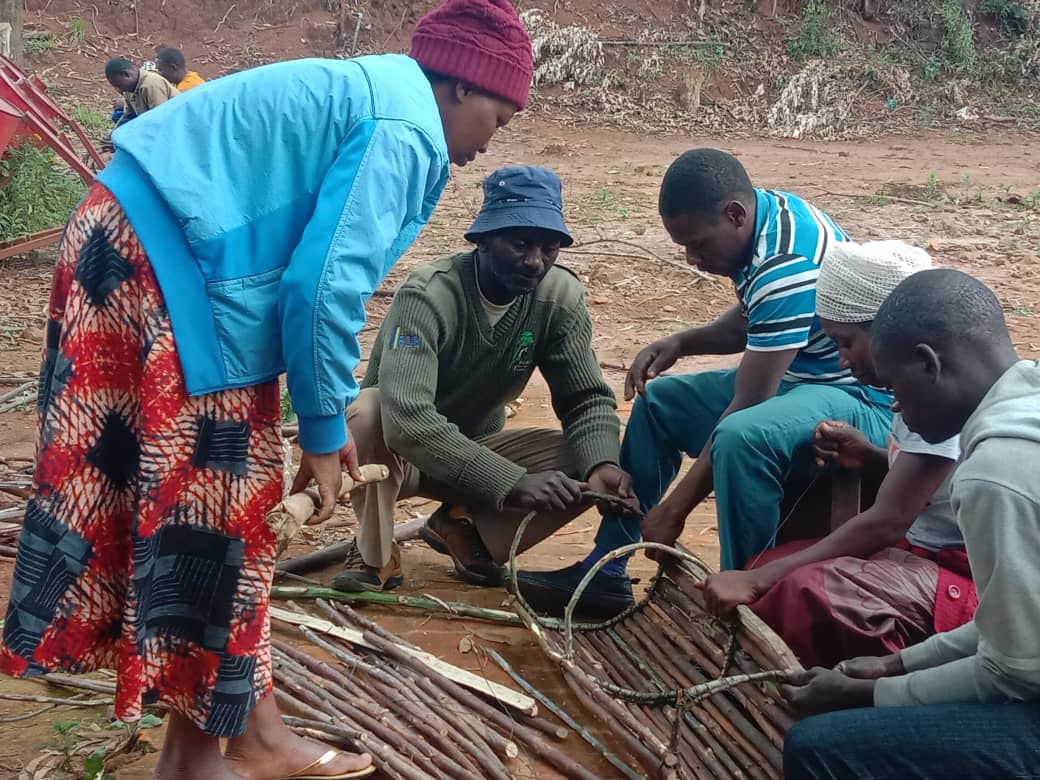
Training on modern Apiary
This activity went hand in hand in training on modern apiary to make it more lucrative.
“We have equipped beekeepers in Rusizi District with skills in cooperative management, modern apiary and the transition of bees from traditional to modern hives which is important in environment protection,” Niyigaba said.
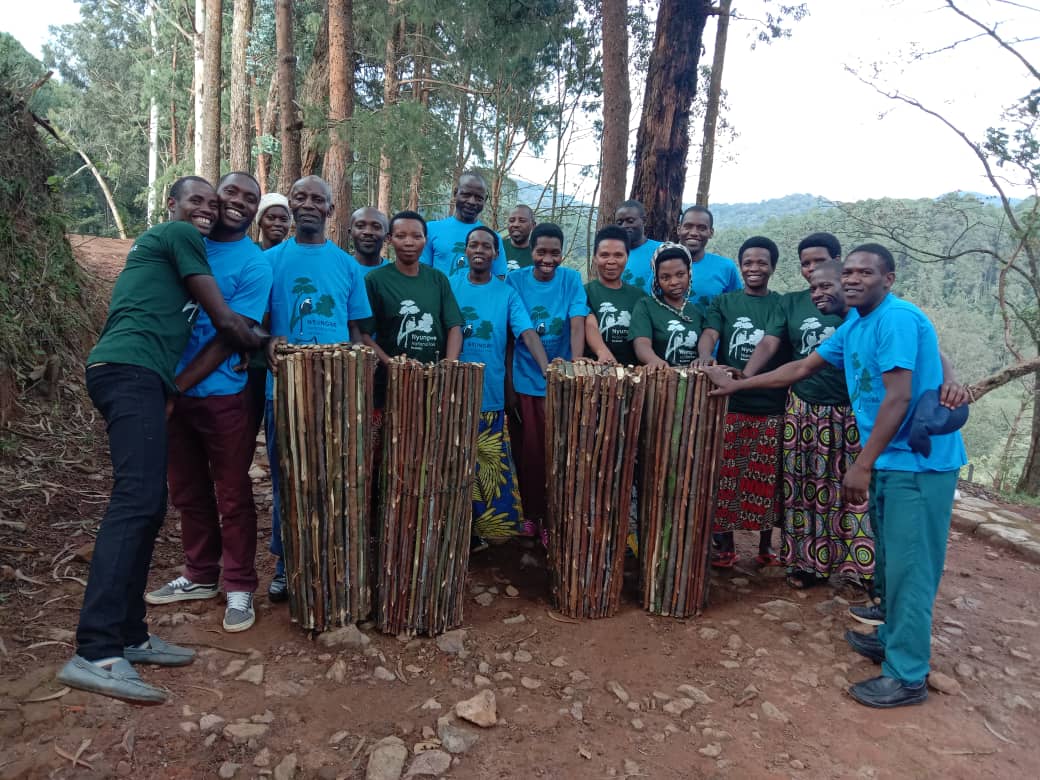
Testifying about the new skills, former traditional bee keepers said that life will never be the same again.
“We were used to do illegal activities including hunting honey and accidently causing wildfires, but ever since we followed the advice of RDB, we created a cooperative called BAHO Nyungwe where women were supported in income generating activities like tailoring, grocery, as wives go to protect Nyungwe National Park as eco-rangers,” Emmanuel Hakizimana one of them said.
He recalls one of their intervention stopping wildfire which occurred in the park last year.
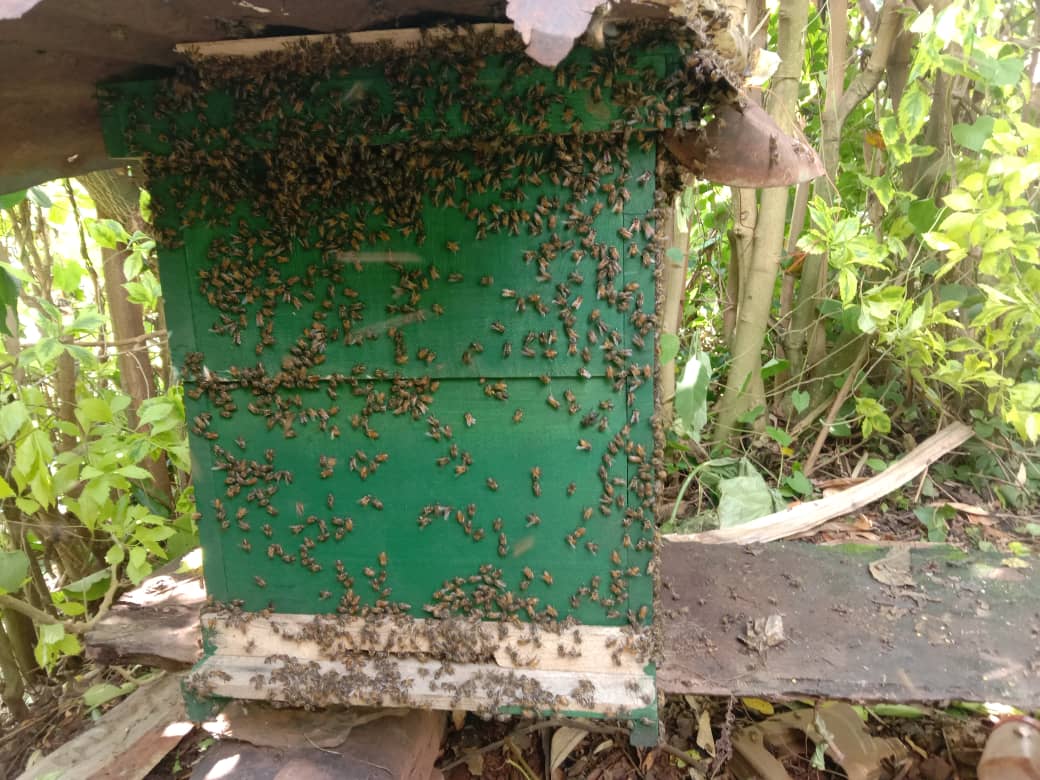
Nyiranangwahafi Josephine lives in Murwa cell,Bweyeye sector, Rusizi District. She is also a member of BAHO Nyungwe cooperative and one of eco-rangers, yet he used to buy and sell honey and meat from poachers in Nyungwe National Park.
‘’I used to sell honey from Nyungwe National Park’s encroachment until RDB trained us on the park, after which I became an eco-ranger. This changed my life because we joined hands together with former park encroachers and started saving groups,” Josephine Nyirangwahafi an eco-ranger said,
“From these saving groups, I get money to cater for my children at school and to pay health insurance among other benefits from my wage.”
The rangers belong to Nyungwe Management Company which launched the Eco- rangers program with 92 ex-poachers organized in four cooperatives created from Rangiro and Cyato in Nyamasheke District, Bweyeye: Rusizi District and Buruhukiro; Nyamagabe.
Nyirangaruye Clémentine

